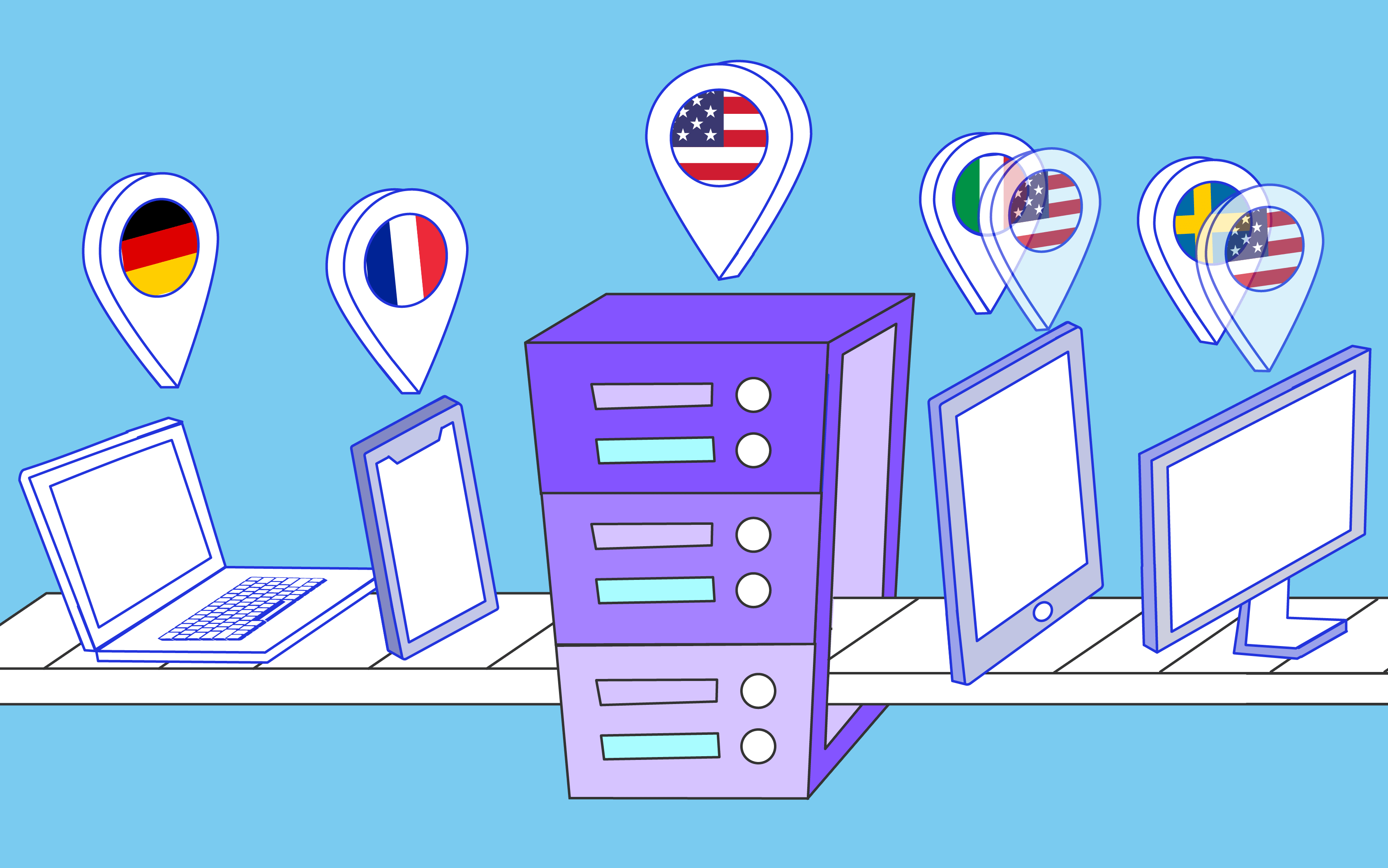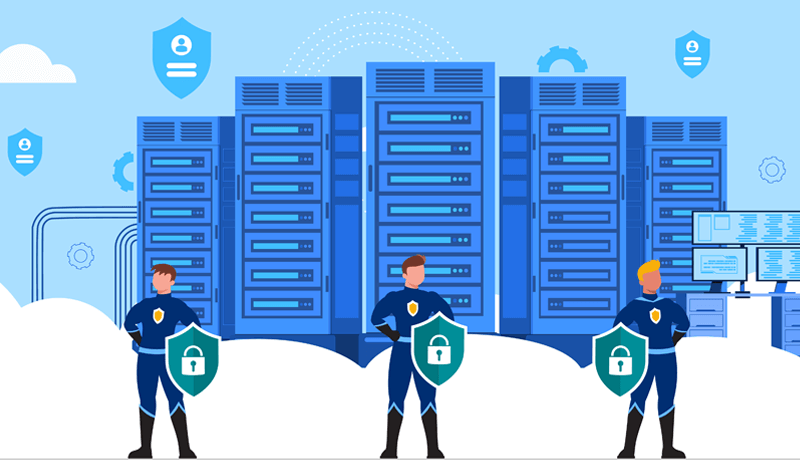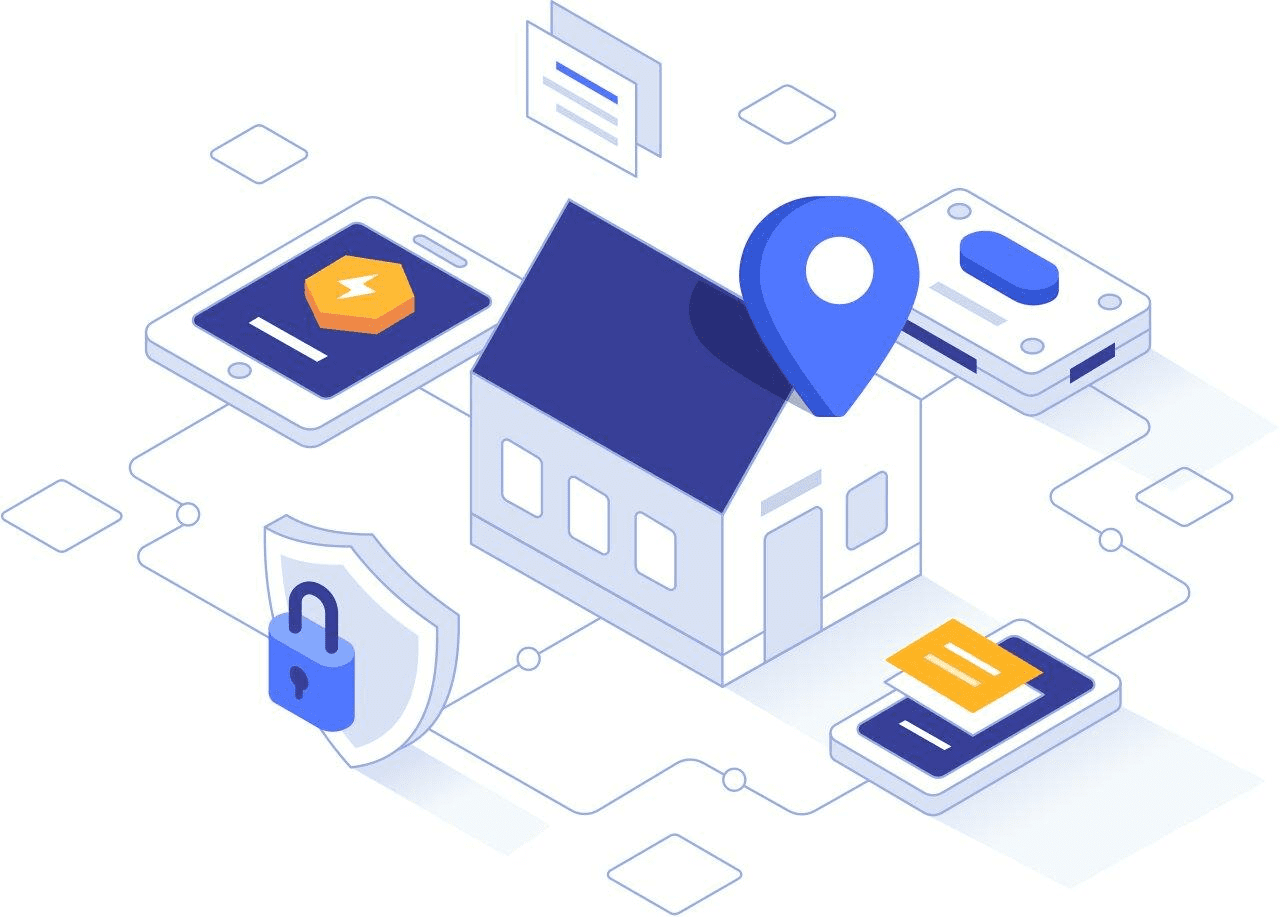Regarding online security, residential and data center proxies can be a great way to keep your identity and information safe. But which one is more secure?
In this blog post, we'll be looking at the differences between residential and data center proxies, as well as which is better regarding security. We'll also discuss the pros and cons of each type of proxy and explain how they can be used to protect your data and privacy.
By the end of this post, you'll better understand which kind of proxy is more secure and how to use it to increase your online security.
What is the Data Center IP Address & Residential IP address?
An IP address, or Internet Protocol address, is a numerical label assigned to each device connected to a computer network that uses the Internet Protocol for communication.
An IP address is like a unique identifier that allows computers and other devices on a network to recognize and communicate with each other.
The two main types of IP addresses are data center IP addresses and residential IP addresses.
Data Center IP Address
A data center IP address is assigned to a computer in a data center, a large server that hosts multiple websites, applications, and services. This type of IP address is static, meaning it doesn't change over time. Businesses and organizations typically use Datacenter IP addresses as they are more reliable and have greater bandwidth than residential IP addresses.
Residential IP address
On the other hand, residential IP addresses are associated with individual households. Residential IP addresses are typically dynamic, meaning they can change over time. Their Internet Service Provider (ISP) usually assigns residential IP addresses to individuals. These IP addresses are most commonly used for activities such as browsing the web, streaming videos and playing online games.
The primary difference between data center IPs and residential IPs is that data center IPs are not associated with a physical location or individual user, whereas residential IPs are. As a result, residential IPs offer more privacy and security than data center IPs.
Additionally, data center IPs can be used for more advanced tasks, such as web scraping and accessing APIs, while residential IPs are more limited in supporting activities.
 Applications of Residential IP Proxies
Applications of Residential IP Proxies
Static Residential Proxy and Rotating Residential Proxy are two types of residential proxies. Static Residential Proxy is a dedicated IP address that remains the same over time, while the Rotating Residential Proxy rotates the assigned IP address after a certain amount of time.
Residential IP Proxies have become increasingly popular among businesses, marketers, and data mining companies due to their high level of anonymity and security. Here are some of the most common applications for Residential IP Proxies:
● Online Data Scraping
Residential IPs provide a reliable and secure way to collect large amounts of data from various online sources for research purposes or market analysis.
● Price Aggregators
Price Aggregators such as Price2Spy, PriceSpider, and PriceAPI use Residential IPs to gather accurate information on product prices from different websites.
● Social Media Marketing
Using Residential Proxies allows marketers to access more social media accounts without getting flagged as a bot or blocked. This helps them save time and reach more potential customers.
● Ad Verification
Companies often need to check the accuracy of their ads across different platforms. Residential Proxies help them do this quickly and efficiently by allowing them to crawl through different websites without getting blocked.
● Local Search Engine Optimization (SEO)
Businesses can use Residential IPs to perform local SEO to increase their visibility in search results for their particular area or region.
Applications of Datacenter Proxies
Datacenter proxies are a popular choice for businesses and individuals that need to increase their online security and privacy. These proxies are hosted on remote data center servers, providing users with a more secure connection than traditional residential IPs.
Datacenter proxies have a wide range of applications, including:
● Online Security
Datacenter proxies offer enhanced security features and can protect you from malicious actors. They can also mask your identity and protect your browsing activities from being tracked by third parties.
● Privacy
By masking your IP address, data center proxies can help keep your identity anonymous while you browse the web. This can be useful if you want to stay private while browsing sensitive sites like adult websites or dark web markets.
● Data Harvesting
Organizations and researchers often use data center proxies to collect large amounts of data quickly and efficiently. These proxies can scrape website data, monitor market trends, and analyze competitor pricing.
● Ad Verification
Datacenter proxies can be used to verify online ads before they are released. This is especially important for organizations that want to ensure that their ads comply with industry standards.
● Performance Testing
Datacenter proxies can also perform performance tests on websites and web applications. This is an important step in ensuring that websites run smoothly and provide a great user experience.
Are Residential Proxies Better Than Datacenter Proxies?
When it comes to choosing between residential and data center proxies, it is important to understand the differences between them. Residential proxies are IP addresses assigned to a specific user or device at home or work. These addresses are more legitimate than those found in a data center, which many users may share.
With a residential proxy, there is also a greater range of locations to connect. This makes them ideal for tasks like collecting data and online advertising campaigns.
On the other hand, data center proxies provide access to more servers and can be used for larger tasks. They are also generally cheaper than residential proxies, making them an attractive option for businesses on a budget. However, their legitimacy is often questioned since they only sometimes represent a real person or organization.
Datacenter proxies are a popular choice with less expensive prices.
 How to Set Up a Residential Proxy Server?
How to Set Up a Residential Proxy Server?
If you want to increase the security of your accounts and data, setting up a residential proxy server is one of the best ways. Residential proxies provide added protection when accessing websites and applications, as they mask your IP address and make it harder for malicious actors to track and target you.
A residential proxy service can be set up quickly with a reliable provider like MoreLogin. Morelogin is a platform that provides a secure and private environment for users. It offers powerful fingerprinting technology to protect user data from malicious third-party services.
MoreLogin delivers a range of Antidetect services, which offers powerful residential IPs worldwide. With these residential IPs, you can browse the web anonymously and access geo-restricted content.
Using a residential proxy service like MoreLogin also ensures that your data is encrypted while in transit and remains secure while using the Internet. The residential proxies provided by MoreLogin have multiple layers of security that protect your data and enhance your privacy.
Using More Login, users can easily manage each account from one place.
It allows users to customize settings and adjust parameters such as proxy, IP address, and geolocation. Users can also track the activities of each account to identify any security issues or abuse quickly.
More Login is an excellent tool for managing multiple accounts securely and privately. It is simple to set up, allowing users to rest easy knowing their data is safe.
With MoreLogin's residential proxies, you can enhance your online security and enjoy unrestricted access to content worldwide.
 Conclusion
Conclusion
When choosing between residential and data center proxies, the answer depends on your particular needs. Residential IP proxies provide more reliable connection speeds, privacy, and security when you need web access from outside your country.
On the other hand, data center proxies are better for web scraping, creating multiple accounts, and online gaming. While both proxies have advantages and disadvantages, Morelogin offers a secure solution for setting up a residential proxy server.
It is easy to use and provides reliable speed, privacy, and anonymity. It is also cost-effective and provides an extensive network of global proxy servers. With Morelogin, you can be sure you are getting the most secure and reliable residential proxy solution.

No comments yet